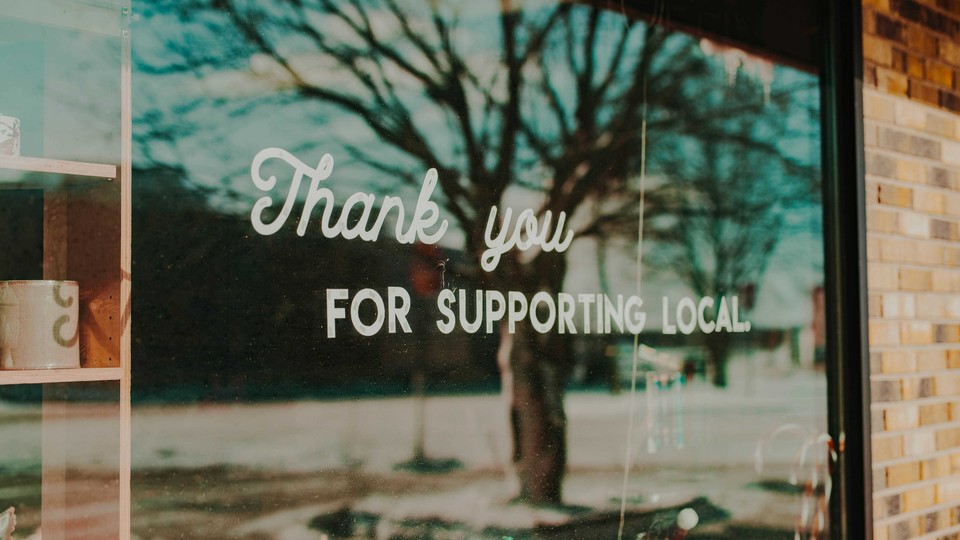
Give And Take
What’s The Best Way To Give When You’re Not Sure Whom To Trust?
By Jasmina Kelemen
What’s The Best Way To Give When You’re Not Sure Whom To Trust?
The disasters of the last year have been stunning: hurricanes, earthquakes, wildfires and, most recently, the Guatemalan volcano eruption that has engulfed whole villages, leaving a hundred dead and hundreds more missing.
Around the world, we feel driven to help — yet often stymied. At the same time the media has given unprecedented detail about humans in need, it has shed light on the limits of the institutions meant to help.
Where to give when even the Red Cross no longer inspires full confidence?
"More and more, donors are becoming concerned with how their donation is used," said Sara Nason, communications manager at the nonprofit Charity Navigator, which rates charities for transparency, efficiency and effectiveness.
These concerns are valid, added Juliet Sorensen, an associate dean at Northwestern Pritzker School of Law. "In the wake of a natural disaster, corruption and fraud abounds," she said. "In part it's because the emergency atmosphere does not lend itself to quality control or meaningful oversight."
In an international city such as Houston, residents are especially attuned to the needs of friends and family abroad — and the failures of institutions to come through. When Houston sank under Harvey's floodwaters last year, for example, the American Red Cross leapt into action with shelters and meals. Yet many donors couldn't forget the shadows looming over the nonprofit ever since its performance in post-earthquake Haiti, where more than a half-billion dollars in donations failed to rebuild even one rebuilt house in some stricken areas.
This week, in the wake of the catastrophe in Guatemala, potential donors have also grappled with their distrust of the country's institutions. "It is really sad, but we don't have trust in government institutions at this point. The day of the volcano eruption, the government actually had a press conference saying, 'We don't have any money for emergency situations,'" said Benito Juarez, a member of two community service associations of Guatemalan Americans. Juarez, who is the City of Houston's Manager for Immigrant and Refugee Affairs, said his compatriots' efforts to send aid in the past have been hamstrung by the government fees or barriers to distribution.
Echoing their experience, aid experts increasingly agree that in natural disasters like the volcano eruption, cash — the one resource most easily pilfered and diverted — is also what's most desperately needed.
So how should donors choose where to give?
First, nonprofit watchdogs say, don't be afraid to crunch the numbers. Use online tools that show how much a nonprofit spends on overhead and what percentage of the donations it receives goes to relief operations. One way to assess global nonprofit spending choices is Guidestar, which offers information about the mission, reputation, finances, programs and governance, among other things, of IRS-registered nonprofits. Another good source is Charity Navigator, which breaks down a nonprofit's financials and assigns a star rating that makes it easy to compare different organizations.
Second, consider supporting projects with lower risk. While corruption taints all economic sectors, some are especially vulnerable, notes economist Peter Rodriguez, dean of Rice Business. "Infrastructure projects are especially prone to corruption," he wrote in a recent paper on foreign corruption, "because they involve large investments and complex contracts in which corrupt payments can be easily be disguised."
And it might even make sense to give to trusted individuals. In those cases, advises Charity Navigator, look for groups with deep local ties, do your homework on the targeted charity and consider a long-term view of recovery needs.
J.J. Watt, the locally beloved defensive end for the Houston Texans, raised $37 million dollars for Harvey relief after starting with a humble appeal for $200,000. In Mexico, newly prominent fundraisers include actors Diego Luna and Gael García Bernal, who confronted distrust of government institutions by appealing for relief funds personally, vowing to publish how much they received, how the funds would be used and what the outcomes were of the efforts.
Similarly, in Houston, Juarez said that he and his friends are donating to a specific gofundme.com site whose Guatemala contact they know personally.
Whatever your choice, though, keep tabs on your nonprofit — and the news around the disaster —after you donate, experts agree. For many survivors, including those in Guatemala and Puerto Rico and Houston, rebuilding is a long and even more grueling process than escaping. Staying vigilant is also the best way to protect the investment you made for fellow humans in need. Keeping that link to the nonprofit you've supported, said Nason, "is crucial to ensuring that you trust the organization and know where your donation is being used."
Gold Standard: A sampling of institutions with high ratings from the watchdogs.
Guatemala
The veteran news agency PBS offers a concise outline of the volcano's ravages and has curated a vetted list of recommended Guatemala recovery charities.
A relative newcomer to disaster relief, gofundme has won trust from donors uncomfortable with government and other traditional institutions. Though no charity option is foolproof, gofundme offers a guarantee and a protocol for making sure your money reaches the correct hands.
United States
Habitat for Humanity: Builds and restores homes for lower-income communities and has a four-star rating, the highest possible, from Charity Navigator. In the wake of Harvey, it has committed to fully rebuilding 176 homes by December 31 in Houston’s hardest hit neighborhoods.
Community Foundation Sonoma County: A philanthropic organization supporting nonprofits in Sonoma County since 1983, it has started a Resilience Fund to support reconstruction after the recent wildfires. It has received 92 out of 100 possible points from Charity Navigator.
Mexico
Los Topos: Founded after the 1985 Mexico City earthquake, Los Topos is a volunteer rescue brigade that has assisted in earthquakes from Mexico to Nepal. The unpaid force uses funds to keep volunteers regularly trained and at the ready to assist at the next disaster. Donations can be made through Paypal at donativos@brigada-rescate-topos.org.
Fondo Unido Mexico: Part of the United Way network inside of Mexico, it focuses on rebuilding schools and community centers and training a culture that’s prepared to react to emergencies. It not only responds to the most visible natural disasters, but since 2011 has attended to less publicized emergencies caused by tropical storms and earthquakes in less populated regions.
Puerto Rico
Direct Relief: A humanitarian aid organization that gets a perfect, four-star rating from Charity Navigator for accountability and transparency. According to its website, 99.4 percent of its expenses are spent on programs and services. Its efforts in Puerto Rico focus on supporting community health centers and primary care associations.
Unidos Por Puerto Rico: A nonprofit spearheaded by the First Lady of Puerto Rico that grew out of a telethon to raise money for hurricane victims. Its board of directors consists of members from the private sector, representing some of the largest corporations on the island, who are tasked with making sure the funds are directed towards hurricane relief. It has enlisted outside, private auditors such as Deloitte and KPMG to track the funds and provides a breakdown on its website of all the goods it has delivered.
Jasmina Kelemen is a journalist who divides her time between Houston and Caracas, Venezuela. A former editor for Bloomberg News, she has reported from 4 continents and contributes to Houstonia magazine and Rice Business Wisdom.
This article also appeared in Gray Matters as "How do you know where your donations go in disasters?"
Never Miss A Story


